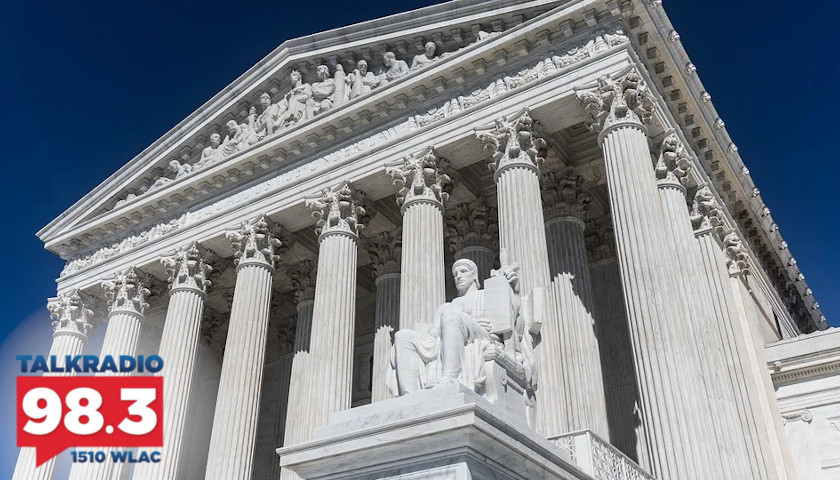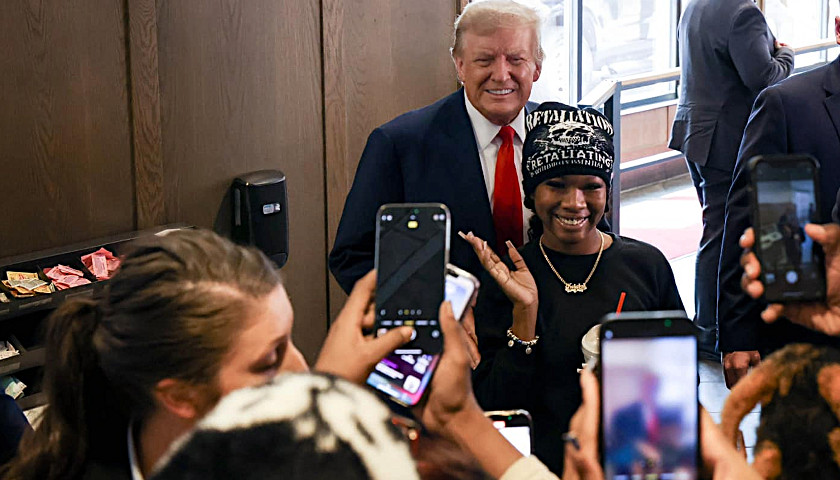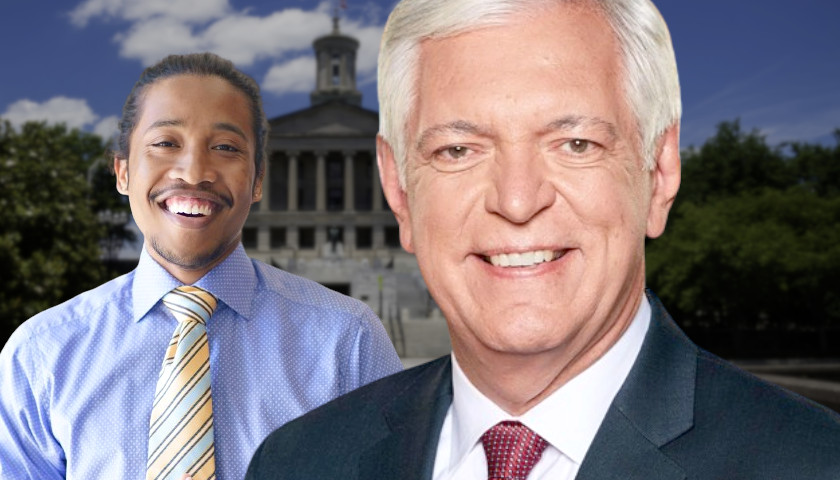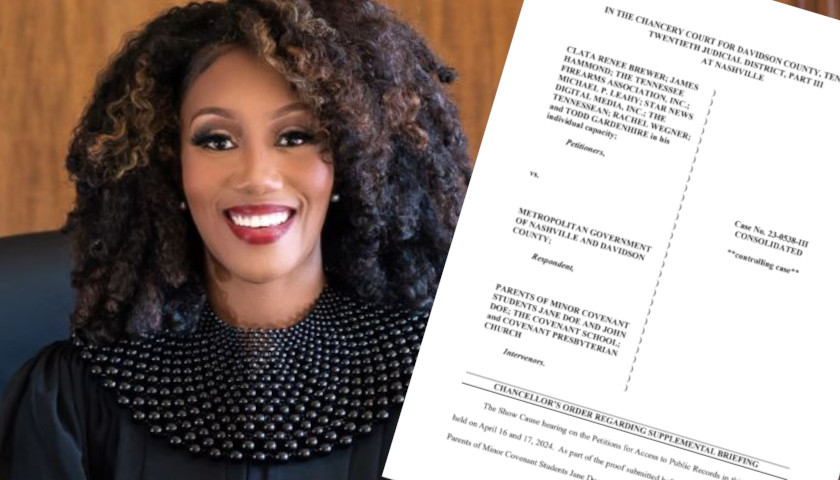Live from Music Row Wednesday morning on The Tennessee Star Report with Michael Patrick Leahy – broadcast on Nashville’s Talk Radio 98.3 and 1510 WLAC weekdays from 5:00 a.m. to 8:00 a.m. – host Leahy welcomed the original all-star panelist Crom Carmichael to the studio.
During the second hour, Carmichael speculated the possibility that the Supreme Court would take up the Texas lawsuit on elections laws or dismiss it outright. He and Leahy later discussed possible scenarios citing the risk the court would run to becoming a damaged institution.
Leahy: Michael Patrick Leahy here with Crom Carmichael the original all-star panelist. Crom, you wanted to follow up on the theme you began in our last segment.
Carmichael: I wanted to just kind of finish it because it is really interesting that Gorsuch on the Supreme Court in part and I’m not saying that in whole but in part because Joe Biden himself in 1992 made it clear that he would not entertain a Supreme Court appointee by then-President George Bush. And that if somebody left the Supreme Court Biden made it clear that if it’s in the year of an election I will not entertain.
And he made that clear so it became a kind of modern times Biden rule. Now it had been the rule for a very long time and he said that. But it is interesting, the irony is that the Biden rule was used as part of the argument against, I’m blanking on the name now, the Democrat from Maryland.
Leahy: Merrick Garland.
Carmichael: Merrick Garland. Thank you.
Leahy: You’re welcome.
Carmichael: And then the treatment of the Democrats the treatment of Kavanaugh by the it’s is a large region that the Republicans retained the Senate. And then and then Amy Coney Barrett is on the Supreme Court because Ginsburg got mad at Obama when he publicly scolded the Supreme Court, which she held that institution in the highest possible regard. And she became angry with Obama and then she refused to retire.
Leahy: Refused to resign.
Carmichael: She refused to retire.
Leahy: Yeah, she refused to retire, and if she had there would be an Obama filling liberal.
Carmichael: Yeah, and so at any rate, the irony is there. And if the Supreme Court were to take the Texas case and if they don’t take the Texas case if they don’t take it, the Supreme Court as an institution is damaged.
Leahy: Very badly in my opinion.
Carmichael: By the people who believe that the election was stolen.
Leahy: Yes.
Carmichael: Now the media will try just like it did with the Russia hoax. It will try over the next period of time to make everybody believe that the election was free and fair.
Leahy: So let me just continue on that theme. I think that as an institution if the Supreme Court chooses to hear the case and rules against Texas that it will not be damaged as an institution. But if they refuse to hear the case, they will be damaged as an institution. Would you agree with that idea or not?
Carmichael: Well the tricky part for them is if they agree to hear the case and the facts that are presented by the case they’d have to ignore the facts in order to rule against Texas. How would you rule against against Texas? Because you’d have to rule then what those states did was constitutional. There are not many parts of the Constitution that are as clear as to how election laws are set in each state.
Leahy: Well let me play Devil’s Advocate.
Carmichael: Please do.
Leahy: There is a part of the Constitution that’s quite clear that all revenue bills must generate in the House of Representatives. That was an element of the Constitution that John Roberts just forgot about in the NFIB case. So all I’m saying is yeah, if they undertook it, I could see perhaps an argument that they would make against it and the liberals would make against it.
And that argument would be well we have to leave it entirely up to the states to determine how they elect even if they allow cheating and violate their own constitutional rules of how the election procedures should be set. I could see that argument being made. My view is if they undertook it and it was argued fairly and they decided on the merits, Texas would win probably five, four. I think John Roberts would go over to the liberal side. That’d be my guess.
Carmichael: I don’t know that Roberts would want to join the three and make it a five, four. It would be interesting to see.
Leahy: His argument would be that he is trying to defend the court and it would be a more decisive victory if he went six, three. Again, we’re speculating.
Carmichael: I think he would prefer not to take it.
Leahy: I think you’re right.
Carmichael: Now I understand that the Supreme Court turned down the Pennsylvania case nine to nothing.
Leahy: Well, it’s been reported nine to nothing. I don’t know if it was nine to nothing actually. That’s how people reported it. They just said they weren’t going to take it.
Carmichael: Now whether or not this case is taken by the Supreme Court Is it determined by a majority of the nine justices?
Leahy: I don’t know. I don’t know how they determine that. I don’t know if it’s one person saying I want to hear it or two or three or whatever number it is. But but it’s interesting in this regard Crom, I think these would be compelling arguments. It would be fascinating to listen to. I think they’re excellent. It’s an excellent case brought by Texas.
Carmichael: Well it is. Now the other thing that could happen is that they could claim that it’s too late. They could come up with a reason not to take it. I’m not saying it’s a great reason. But they could come up with it. And if they voted nine nothing then they might maintain their integrity that way. Now, here’s what I think would happen if they did that. I think that the legislature of those five states are on very fragile ground with their Republican constituents.
Leahy: Absolutely.
Carmichael: I think when they come back into the session they will rewrite election law.
Leahy: They should. In Georgia, I’m going to say the possibly compromised governor and possibly compromised secretary of state.
Carmichael: But the governor doesn’t get to sign the bill. The Constitution says that the legislature sets the election laws. What I’m saying is that the legislators of the states and then if the governor vetoed it then they would take that to the Supreme Court and say this is what the Constitution says. That way the Supreme Court could side with the legislators.
Leahy: But by constitutional law that would probably I think if you’re correct, that would be the way it would turn out. The legislature could pass it. Both Houses could pass it. And if in most bills the governor would have to sign it into law.
Carmichael: But this isn’t most bills.
Leahy: I agree. It’s a fine point you make. I like that point.
Carmichael: They might not even send it like Pennsylvania. They might not even send it to the guy.
Leahy: You got a Republican legislature there and a Democratic governor. So why send it?
Carmichael: They might not even send it to the governor for a signature. And then somebody then files a suit to make sure that that law because voter suppression and if illegal voting and packing the ballot box with fake votes is stopping it, and that is voter suppression, then count me in. I’m for voter suppression of illegal votes.
Leahy: Illegal votes. Of course.
Carmichael: When do you think the Supreme Court will take it?
Leahy: I don’t know. This week sometime.
Carmichael: You think it is this week?
Leahy: I think so. It’s if they decide to take it or not which is why the governor of Tennessee should jump in now. The more states that join Texas, the better.
Listen to the full second hour here:
– – –
Tune in weekdays from 5:00 – 8:00 a.m. to the Tennessee Star Report with Michael Patrick Leahy on Talk Radio 98.3 FM WLAC 1510. Listen online at iHeart Radio.








